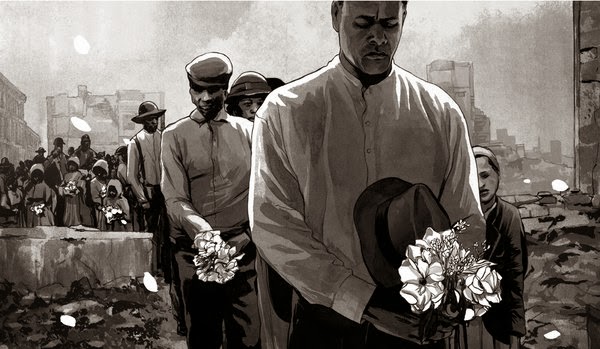
By Dr. John E. Warren, Publisher
Memorial Day, a day set aside in history by former slaves in Charleston South Carolina, is one more expression of our contribution to America; a day in May of 1865, when African Americans, most of whom were reported to be former slaves.
History tells us that during the Civil War, the Confederate Army converted the city race track in Charleston, South Carolina into a prison camp to hold captured Union soldiers. The conditions in which these soldiers were kept is reported to have been so bad that at least 257 died of disease and were buried in a mass grave behind the grandstand of the track.
After the Confederate evacuation of Charleston, Black workmen went to the site and reburied the Union soldiers, built a fence around the cemetery and an archway over an entrance and called the fallen dead, “Martyrs of the Race Course”. Later, white missionaries and teachers, reportedly staged a parade of 10,000 people honoring the dead with 3,000 Black schoolchildren carrying flowers and singing. Several hundred Black women followed with baskets of flowers, wreaths and crosses. They were followed by Black men marching in cadence who were followed by contingents of Union infantrymen. Within the cemetery, spirituals were sung and a number of Black ministers read from the bible.
When the ceremonies dedicating the site were over, the crowds went into the fields nearby and enjoyed picnics, listened to speeches and watched soldiers drill, among whom were the following “colored” troops:
the famous 54th of Massachusetts and the 34th and 104th United States Colored Troops. But history has attempted to change the facts giving credit to a Union General, John Logan, who issued a decree for what was then named “Decoration Day” on May 5th 1868, three years and four days after the former slaves and Blacks of Charleston, South Carolina, had established the above cited tradition.
But efforts to stop or erase the contribution of Blacks to what is now a national holiday did not stop there. The park where the race track prison camp once stood was renamed Hampton Park after Confederate General Wade Hampton, who became Governor of South Carolina after the Civil War. In 1966, former President Lyndon B. Johnson declared Waterloo, New York the official birthplace of Memorial Day and in 1971, Congress established “Memorial Day” as an official federal holiday to honor all American who have fallen in U.S. Wars.
Writers and scholars such as Sarah Lazare of Alternet, Victoria Massie of Vox, and professor David W. Blight of Harvard University have documented what is clearly a systematic effort to erase and distort African American history by presidents, lawmakers, generals and scholars.
Today all War dear are honored as the South continues to struggle with removal of statutes and monuments to the Confederacy and the inhumanity that went with it. Hopefully this bit of history will help some remember and others refocus what Memorial Day is really all about and who gave it to us.


